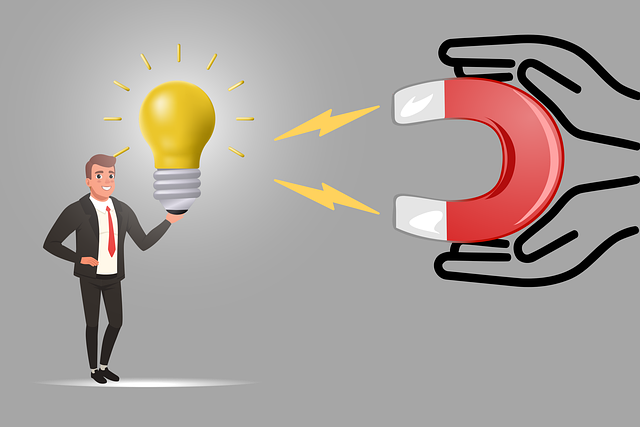Gas and electric water heaters offer distinct advantages. Gas heaters are efficient, durable, and suitable for quick installations by a residential plumber expert, while electric heaters provide energy efficiency, quiet operation, and DIY maintenance. When deciding, consider upfront vs long-term costs, energy savings, installation practicality, and safety for families. A residential plumber expert can guide homeowners in choosing the best option based on specific needs and eco-friendly practices.
“Thinking of switching your water heater but unsure where to start? This comprehensive guide offers a detailed comparison between gas and electric models, empowering both homeowners and residential plumbers. Discover the pros and cons of each option, from energy efficiency and installation ease to long-term savings. By exploring these factors, you’ll make an informed decision that suits your needs and budget.”
- Gas Water Heaters: Advantages for Residential Plumbers
- Electric Water Heaters: Pros and Cons for Homeowners
- Energy Efficiency: A Comparison of Power Sources
- Installation and Maintenance: Which Is More Practical?
- Cost Analysis: Short-term vs Long-term Savings
Gas Water Heaters: Advantages for Residential Plumbers

Gas water heaters offer several advantages for residential plumbers and homeowners alike. As an expert in this field, a residential plumber can attest to the efficiency and cost-effectiveness of gas heaters. These systems heat water quickly and consistently, ensuring a steady supply for various household needs, from showering to cooking with a kitchen faucet. The direct heating method reduces waiting times, which is a significant benefit for busy families.
Moreover, gas water heaters are known for their longevity and reliability. With proper maintenance, they can last for years, providing excellent value for the investment. Residential plumbers can also install these systems efficiently, offering 24/7 leak detection services to prevent plumbing disasters. This proactive approach ensures that any potential issues are identified swiftly, maintaining a safe and stable home environment.
Electric Water Heaters: Pros and Cons for Homeowners

Electric water heaters have their merits and drawbacks for homeowners looking to heat their water efficiently. Pros include their energy efficiency; electric heaters often come with advanced heating elements designed to maximize energy transfer, potentially reducing electricity bills compared to traditional gas models. This makes them an attractive option for environmentally conscious folks or those aiming to lower their carbon footprint. Additionally, electric heaters are generally quieter, eliminating the rumbling noise often associated with gas water heaters.
However, cons include higher upfront costs, as electric heaters tend to be more expensive to purchase and install than gas alternatives. Homeowners should also consider the potential impact on their electrical system; installing a high-capacity electric water heater might require upgrades to older circuits or even the addition of sustainable drainage systems to manage any excess heat or condensation. Unclogging drains can become a concern if not maintained properly, as these heaters can be more prone to mineral buildup over time. Experts recommend regular maintenance and filter changes to ensure optimal performance and longevity for electric water heaters in residential plumbing installations.
Energy Efficiency: A Comparison of Power Sources

When comparing gas and electric water heaters, energy efficiency is a key consideration. Both types have their pros and cons in this regard, with each power source offering unique advantages. Electric water heaters, for instance, are generally more energy-efficient as they directly convert electricity into heat, with minimal energy loss. This makes them a popular choice among eco-conscious homeowners and those looking to reduce their carbon footprint. According to industry experts, electric heaters can save up to 25% on energy bills compared to gas models, making them an attractive option for long-term cost savings.
In contrast, gas water heaters have traditionally been seen as less efficient due to the energy lost during the combustion process. However, modern high-efficiency gas heaters have significantly improved in this area. A residential plumber expert can guide you through the options, highlighting advanced features like heat exchangers and condensing technology that boost efficiency levels comparable to electric heaters. While upfront costs for installation might be higher, these gas heaters can offer significant long-term savings, especially in regions with lower electricity rates, making them a viable solution for many homeowners, including those requiring expert drain cleaning or sewer line replacement services.
Installation and Maintenance: Which Is More Practical?

When comparing gas vs electric water heaters, one key consideration is installation and maintenance practicality. Gas water heaters often require professional installation by a licensed residential plumber, as they involve complex gas lines and potential safety hazards. This can significantly impact upfront costs, typically making them more expensive to install than electric models. However, regular maintenance for gas heaters is generally minimal, with annual check-ups usually covering the necessary safety inspections.
Electric water heaters, on the other hand, are often DIY-friendly, allowing homeowners or handyman plumbing services to install and maintain them relatively easily. This can save on installation costs compared to gas options. Moreover, electric heaters have no gas lines, eliminating potential risks and making them safer in certain situations, like homes with children or pets. While electric models may require periodic element replacement, overall maintenance is generally simpler and less costly than gas water heaters. According to a plumbing cost guide, the average annual maintenance cost for an electric heater tends to be lower than that of a gas-powered one.
Cost Analysis: Short-term vs Long-term Savings

When comparing gas vs electric water heaters, cost analysis is a significant factor for homeowners to consider. Initially, electric water heaters might appear more expensive due to their higher upfront costs. However, over time, they can offer substantial long-term savings. Electric models are generally more energy-efficient, with advanced heating elements that reduce energy waste. This efficiency translates into lower electricity bills, making them a sustainable option for homeowners looking to save money in the long run.
In contrast, gas water heaters often have lower initial costs and faster installation times, as they don’t require extensive electrical work. While they may seem more cost-effective in the short term, the rising cost of natural gas can offset these initial savings over time. A residential plumber expert can help assess your home’s specific needs and energy usage patterns to determine whether a gas or electric water heater is the better investment. Factors like sustainable drainage systems and efficient plumbing fixtures can also play a role in long-term cost savings, ensuring that your water heating system works harmoniously with other eco-friendly practices.
When comparing gas versus electric water heaters, a residential plumber expert can guide homeowners in making an informed decision. Both have their pros and cons, with energy efficiency being a key factor. Gas heaters offer quicker heating times but may be more expensive to operate; while electric heaters are generally cheaper to use, they take longer to heat the water. Installation and maintenance costs vary, so a detailed cost-benefit analysis is essential. In terms of long-term savings, electric heaters could prove more economical, but initial installation costs might differ. Ultimately, the choice depends on individual needs, budget, and environmental considerations.
